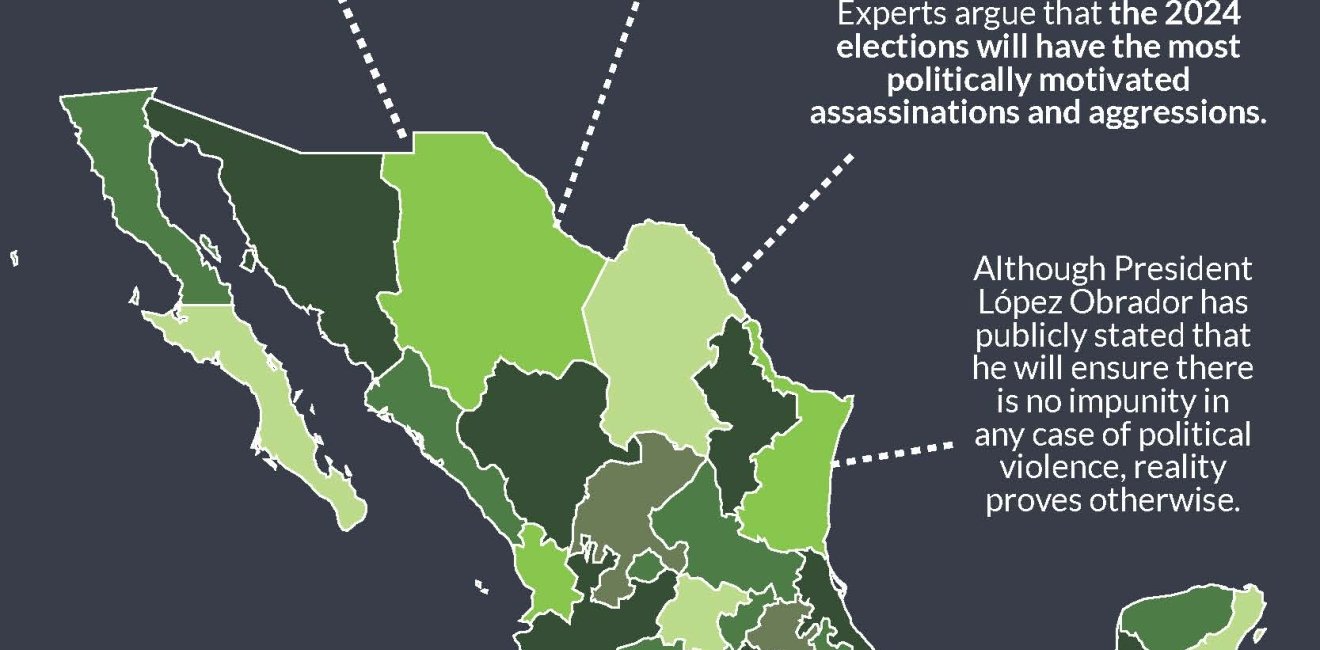READ THE FULL ARTICLE HERE
Executive Summary
As Mexico approaches its largest and most significant elections in its recent history, it also faces a concerning and often overlooked phenomenon that could influence the outcome of elections: political violence. This complex problem impacts the very foundations of Mexican democracy.
From 2018 to March 2024, 1709 attacks, murders, assassinations, attacks, and threats have been registered in Mexico against people working in politics or government or against government or party facilities.
Political violence goes well beyond criminal organizations and cartel dynamics; it results from high levels of impunity, rearrangements between criminal groups, and a lack of the rule of law and protection for politicians and political candidates. With the small willingness of the federal government to handle the issue and a fragile National Electoral Institute (INE) and Electoral Tribunal of the Federal Judiciary (TEPJF), a careful assessment of how to address the problem is necessary.
With experts arguing that the 2024 elections will be the most violent Mexico has ever seen, more attention needs to be given to this topic. Too much is at stake in Mexico, including Mexican lives. Normalizing political violence is in no one's interest. Politicians, government officials, law enforcement, civil society, and the international community must pay attention.
According to data from the Institute for Economics & Peace (IEP), Mexico is one of the most dangerous places in the world to be a local politician. Of the reported incidents in 2022, 62% were intentional attacks against government officials, with some ending in death by way of shootings or beatings. The rest of the attacks were categorized as non-direct, which included riots and internet attacks. This level of violence places Mexico above the global average of intentional attacks against government officials.
Political violence includes violence with a political purpose or motivation that creates conflict over political competition and government legitimacy by removing or cowing political dissent. Governments and political parties use it to remain in power or harm their adversaries, and criminal groups use it to intimidate their opponents or garner support for their allied politicians. The logic and nature of political violence depend on the perpetrator and its objectives.
Killing a political candidate or an elected or acting public official is just the tip of the iceberg. Political violence, which stretches beyond electoral cycles, is composed of a wide range of acts, including kidnappings, attacks, and injuries with firearms, personal and family member assaults, intimidation, threats, interception of private communications, and cyberbullying, among others.






